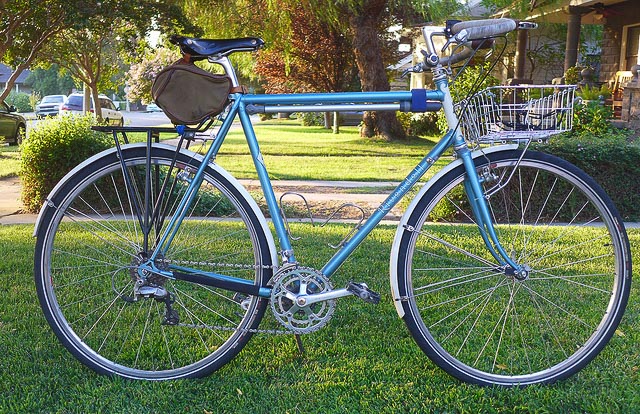The following is a guest blog post by Mary Blitzer, community and government affairs manager for the non-profit Bike Houston, which advocates for more and better access to high quality bike lanes and trails. The views expressed here are those of the author and do not necessarily reflect the views of the Kinder Institute for Urban Research or its staff.
The Houston Bike Plan is here and you need to check it out. This is a plan for everyone who rides bicycles now and everyone else who’s bike has been hanging in your garage for the past 10 years.
The Houston Bike Plan is the plan for how to make bicycling in Houston safer and more fun all around. The plan sets the roadmap for how to build a network of safe, comfortable bikeways. Here are the five things you need to know about the Houston Bike Plan:
1. More comfortable bikeways. These are places you and other average American adults would feel safe riding on. Comfortable bikeways include trails; neighborhood streets; and designated on street facilities like bike lanes or sidepaths.
No surprise to most of us, Houston currently doesn’t have too many of these places right now in our bike network (currently we’re at 259 miles of high comfort bikeways). The Houston Bike Plan actually recommends removing some of the ‘so called bike lanes’ on streets with very high speeds (think Westpark) and shared bike routes on busy streets like Washington Avenue. Instead of these high stress bikeways, Houston’s future bikeway network will be made up of bayou and utility corridor trails, neighborhood streets like Hawthorne and bike lanes like Heights Blvd.
2. A connected network of bikeways. When we say network we mean it, as everyone who bicycles or drives knows, you need to be able to connect from one street or trail to another. The short term priority projects will more than double our network of comfortable bikeways, when you add in the key connection projects it nearly triples.
3. Project Phasing – Gold in 10 years. The Houston Bike Plan includes 328 miles of short term projects – mainly striping and paint – that are cheap but effective ways to turn an uncomfortable or hard to navigate street into a comfortable bike way. It also includes 86 miles of key connections projects which are mainly trails along utility corridors that allow you to move from one part of town to another. If we can build all of these projects in 5 – 10 years, we will be a ‘Gold’ Level Bicycle Friendly Community. The final project phase is long term and is the build out of a full bikeway network, which will happen over the next 20 years as Houston rebuilds all of its streets.
4. Programs & Policies too. Beyond trail and street projects, the Houston Bike Plan also outlines what programs and policies are needed to become a Gold Level Bicycle Friendly Community. Programs include awareness programs for drivers, education for all, and community events like Sunday Streets and Pop-Up bikeways. Policies include changes to make bikeway maintenance a regular action.
5. Good for Everyone (even those of you who never, ever want to get on bicycle). The Houston Bike Plan will get more people riding. 33 percent of all trips in Houston are 3 miles or less, with a network of comfortable bikeways, people will start making trips via bicycles. The plan will get people riding on trails, neighborhood streets, and in designated spaces on larger streets. This will reduce conflicts between people driving and bicycling and it will reduce traffic.
To learn more -- and find out how to weigh in on the plan -- visit www.houstonbikeplan.org

